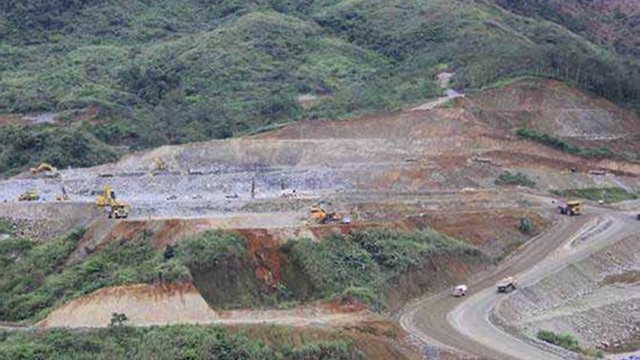SUMMARY
This is AI generated summarization, which may have errors. For context, always refer to the full article.

BAGUIO CITY, Philippines – Nine years after the Supreme Court ruled that the 1995 Mining Act is constitutional, it will again review petitions assailing its legality during oral arguments on Tuesday, April 16. (Check our timeline on the Mining law)
Even with the Mining Act in place, the Aquino administration has issued an executive order which rules out the automatic renewal of mining permits after 25 years of operation.
On Tuesday, the SC will tackle issues raised by then Akbayan partylist Rep. Risa Hontiveros, Quezon Rep. Lorenzo ‘Erin’ Tañada III, Bayan Muna partylist group Rep. Teddy Casiño and other petitioners on the validity of sections 80 and 81 of Republic Act 7942.
Sec.80 states that the total government share in a mineral production sharing agreement (MPSA) shall be the excise tax on mineral products, while Sec.81 specifies the government share in Financial or Technical Assistance Agreements or FTAAs.
The petitoners said both are unconstitutional because they foster inequitable sharing of wealth. Sec. 80, for one, limits the share of the government in MPSA to excise taxes while Sec. 81 confines government’s share to taxes, fees and royalties instead of letting it have full control over the exploration, development and utilization of mineral resources.
The fiscal arrangement under Sec. 80 is “glaringly contradictory to the constitutional provision that the development of the national patrimony should be based on an equitable distribution of wealth and that this clear defect in the law limiting the share of the state to excise taxes cannot be remedied by any executive issuance,” the petitioners said.
They also sought a temporary restraining order that would stop the Department of Environment and Natural Resources (DENR) from acting on MPSA applications, and asked the SC to void the MPSAs with Hallmark Mining Corporation and Austral-Asia Link Mining Corp. The MPSAs cover the municipalities of Mati, San Isidro and Governor Generoso in Davao Oriental.
The SC wants the following issues to be threshed out:
- whether Sec. 81 “meets the completeness and sufficient standard test because of the use of the term “among other things” to denote government share in FTAA”
- whether there is “undue delegation” of legislative power to the DENR Secretary in the determination of what is included in the government share
The 4 other matters that would be tackled today, Tuesday, are:
- the legal standing of the petitioners
- whether the issues raised in the petitions are matters of policy not subject to judicial review
- if the constitutionality of sections 80 and 81 should still be reviewed given the December 2004 decision of the High Court in La Bugal-B’laan Tribal Association v. Ramos, which declared the Mining Act of 1995 as consitutional
- whether the alleged harmful effects of mining to the environment, health of the community and human dignity have “factual basis”
This time around, the High Court wanted the parties to discuss if the nullification of the provisions in question would render the whole law unconstitutional, given the separatability clause in the law.
Sec. 114 or the Separability Clause states that “If any of the provision of this Act is held or declared to be unconstitutional or invalid by a competent court, the other provisions hereof shall continue to be in force as if the provisions so annulled or voided had never been incorporated in this Act.”
The SC will also tackle the effects of the nullification of existing FTAAs. Could this be considered impairment of contracts?
The parties will have 30 minutes to present their side before the SC justices. Justice Marvic Leonen inhibited from the case because he was a petitioner for La Bugal.
The justices are holding their en banc meeting in the summer capital. – Rappler.com
Add a comment
How does this make you feel?
There are no comments yet. Add your comment to start the conversation.